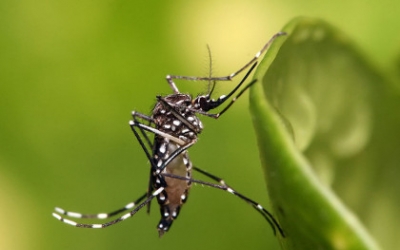- Latest news▼
-
10:23, April 19 JAMA Oncology: Urine test can help rule out high-grade prostate cancer with almost 100% accuracy, study shows

-
18:00, April 18 Daily Mail: Elderly woman in China gets infected with brain-eating amoeba

-
14:19, April 18 Obesity: exercising before breakfast helps you lose weight faster

-
10:42, April 18 The Conversation: childhood trauma can cause pathological hoarding

-
08:37, April 18 Daily Mail: Satiating food reduces cravings for sweets, nutritionist says

-
18:22, April 17 First Armenian-German Conference entitled “Heart Failure Spring School”

-
08:38, April 17 Why do kids usually recover from COVID-19 more easily than adults?

-
14:37, April 16 Daily Mail: intermittent fasting is not suitable for children and women before their periods

-
16:41, April 15 Cell: in carriers of defective BRCA2 gene, sugar consumption increases cancer risk

-
15:04, April 15 305 cases of measles recorded in Armenia so far in 2024

-
14:38, April 15 Food and Environmental Virology: tea contributes to effective coronavirus control

-
12:41, April 15 Daily Mail: vitamin A, B3 and E supplements can be dangerous

-
10:56, April 15 Diabetes Care: evening physical activity is good for the heart

-
08:27, April 15 Women are more susceptible to blood loss and death during bypass surgery than men, researchers say

-
18:42, April 13 WHO: Nigeria pioneers revolutionary meningitis vaccine

All materials
IAEA ready to irradiate mosquito sperm to combat Zika virus

A new method to render male mosquitoes infertile by nuclear radiation could help reduce populations of the insect carrying the Zika virus that is linked to thousands of birth defects in Brazil, the U.N. atomic agency said on Tuesday.
Experts from the Vienna-based International Atomic Energy Agency are to meet Brazilian officials on Feb. 16 to discuss how best to roll out the so-called Sterile Insect Technology (SIT) in the host country of the 2016 Summer Olympics.
"If Brazil released a huge number of sterile males, it would take a few months to reduce the population, (but) it has to be combined with other methods," IAEA Deputy Director General Aldo Malavasi told reporters.
Besides SIT, the spread of the Zika virus, which the World Health Organization has declared an international public health emergency, could be fought by more intense sanitation efforts, the use of insecticides or traps.
SIT, adapted from decades-old methods used to slash populations of other insects such as fruit flies, involves exposing males of the Aedes aegypti mosquito to X- or Gamma rays to render their sperm sterile.
Such laboratory-bred male mosquitoes could then be released in the wild to mate with the females of the species who then bear eggs that never hatch, thus reducing the number of insects in a given area without killing any animals or using chemicals.
"It's family planning for insects," said Jorge Hendrichs, head of the Insect Pest Control Section at the IAEA, which offers the technological know-how to interested member countries for free so they can design and run their own SIT program.
The sterile males, one generation of which takes about a month to breed, must outnumber the indigenous males by a factor of 10 or 20 to make their mark in a mosquito population.
This requires millions of males, making the method more likely to be used in villages or towns, rather than large cities, Malavasi said.
In test runs running over several months in Italy, SIT helped cut mosquito populations by around 80 percent and in China the success rate was as high as 100 percent, Konstantinos Bourtzis of the IAEA's insect pest control laboratory said.
Apart from Brazil, other countries such as Mexico, Guatemala, El Salvador and Indonesia have also requested the technology from the IAEA to control their mosquito populations.
According to the WHO, the Zika virus is "spreading explosively" and could infect as many as 4 million people in the Americas. The Pan American Health Organization says Zika has spread in 24 nations and territories in the Americas.
Follow NEWS.am Medicine on Facebook and Twitter
- Video
- Event calendar
- Archive
- Most read
month
week
day
- Pediatrics: Hypoglossal nerve stimulation implant helps with sleep apnea 1365
- WHO: Nigeria pioneers revolutionary meningitis vaccine 1171
- One-third of women experience menstruation-related migraines, most often during premenopause - study 1137
- Women are more susceptible to blood loss and death during bypass surgery than men, researchers say 953
- Food and Environmental Virology: tea contributes to effective coronavirus control 941
- Daily Mail: vitamin A, B3 and E supplements can be dangerous 940
- Cell: in carriers of defective BRCA2 gene, sugar consumption increases cancer risk 912
- 305 cases of measles recorded in Armenia so far in 2024 904
- Diabetes Care: evening physical activity is good for the heart 894
- Daily Mail: intermittent fasting is not suitable for children and women before their periods 720
- First Armenian-German Conference entitled “Heart Failure Spring School” 510
- Why do kids usually recover from COVID-19 more easily than adults? 382
- Obesity: exercising before breakfast helps you lose weight faster 369
- The Conversation: childhood trauma can cause pathological hoarding 361
- Daily Mail: Satiating food reduces cravings for sweets, nutritionist says 336
- Find us on Facebook
- Poll





